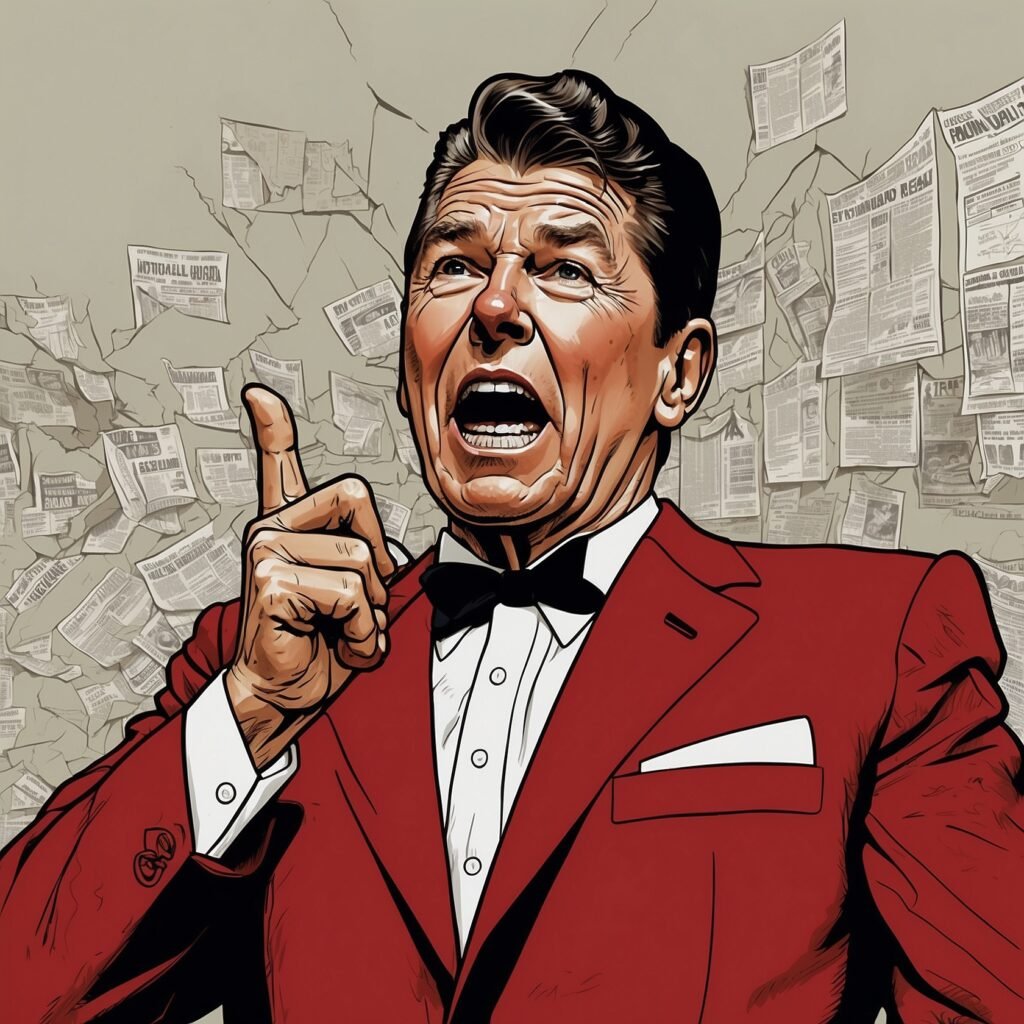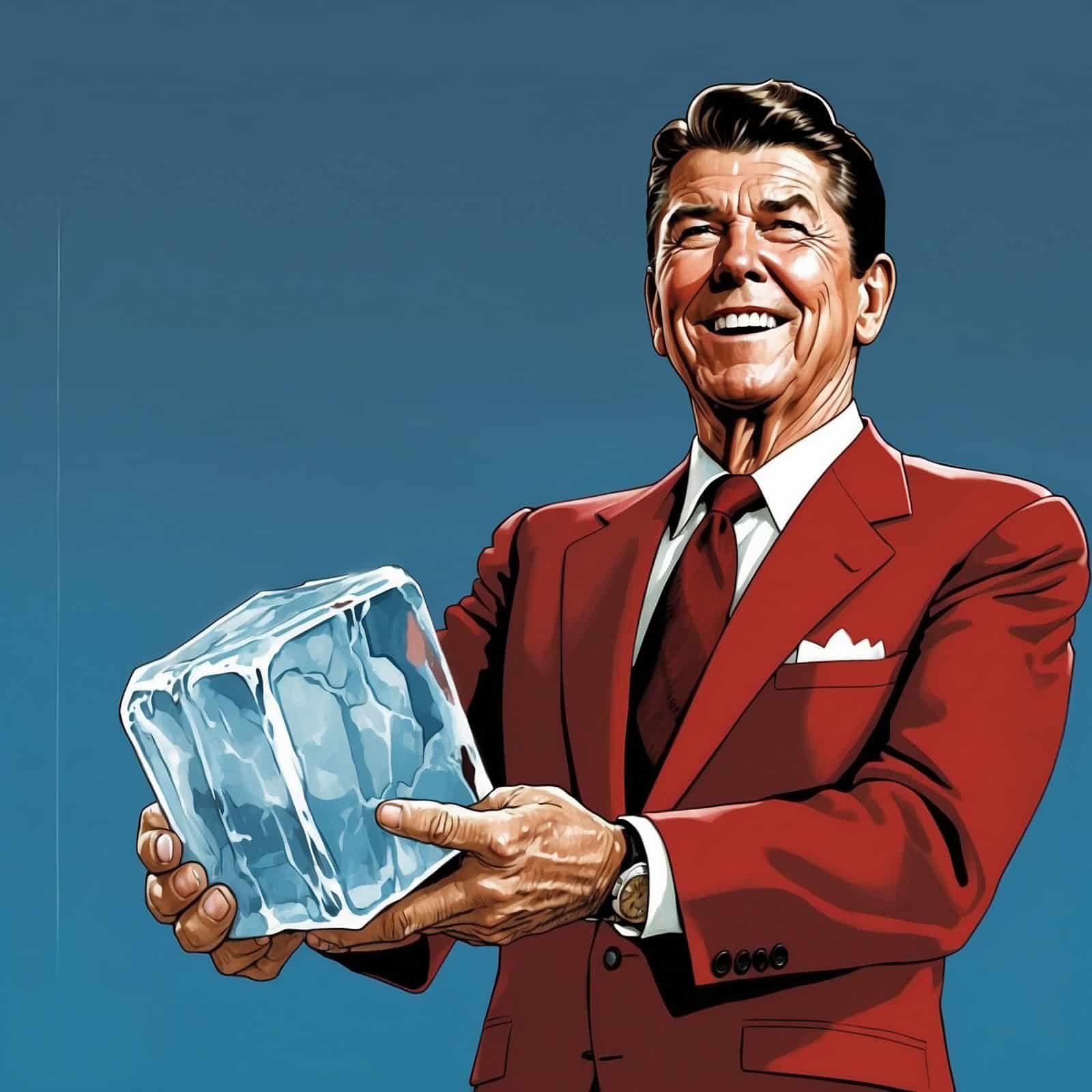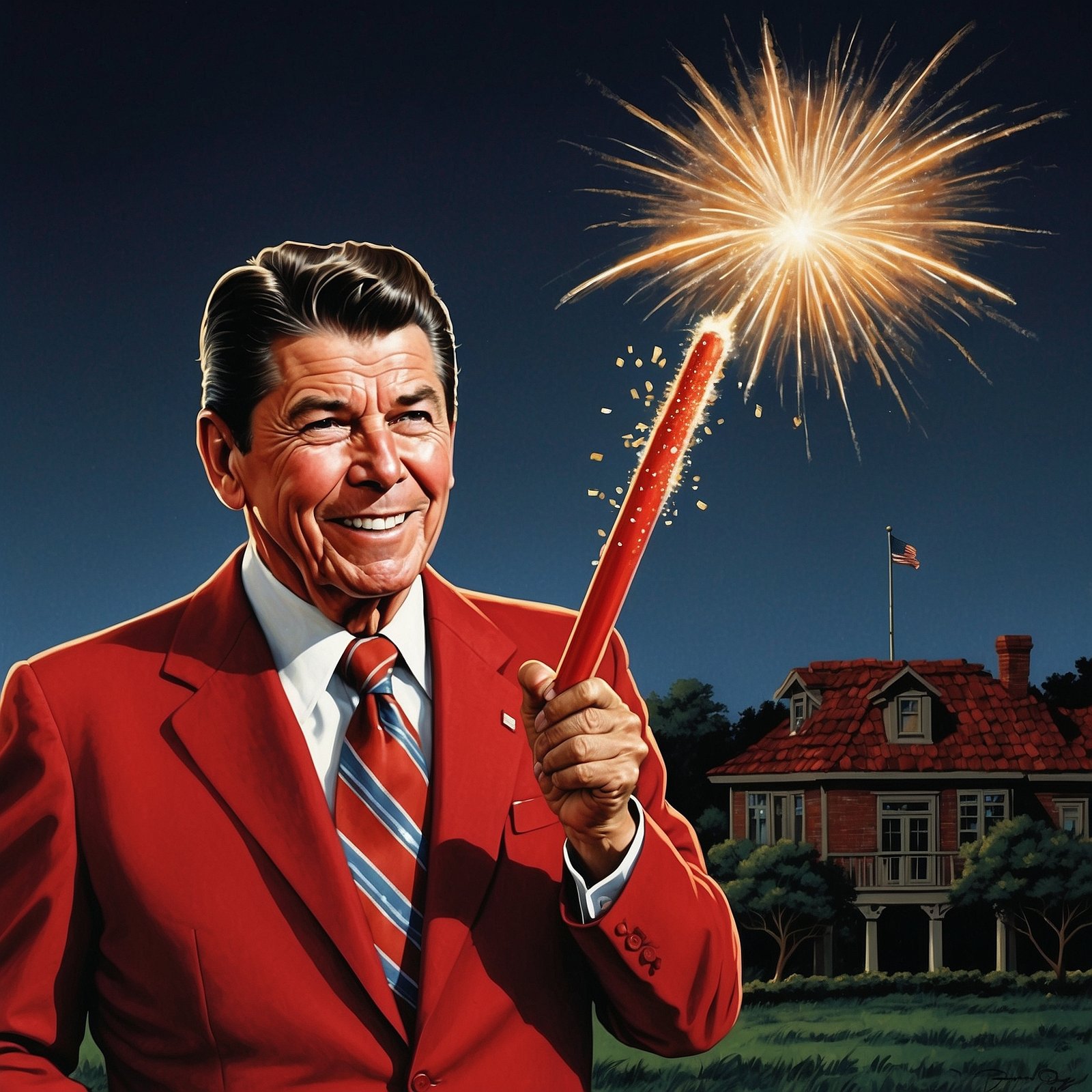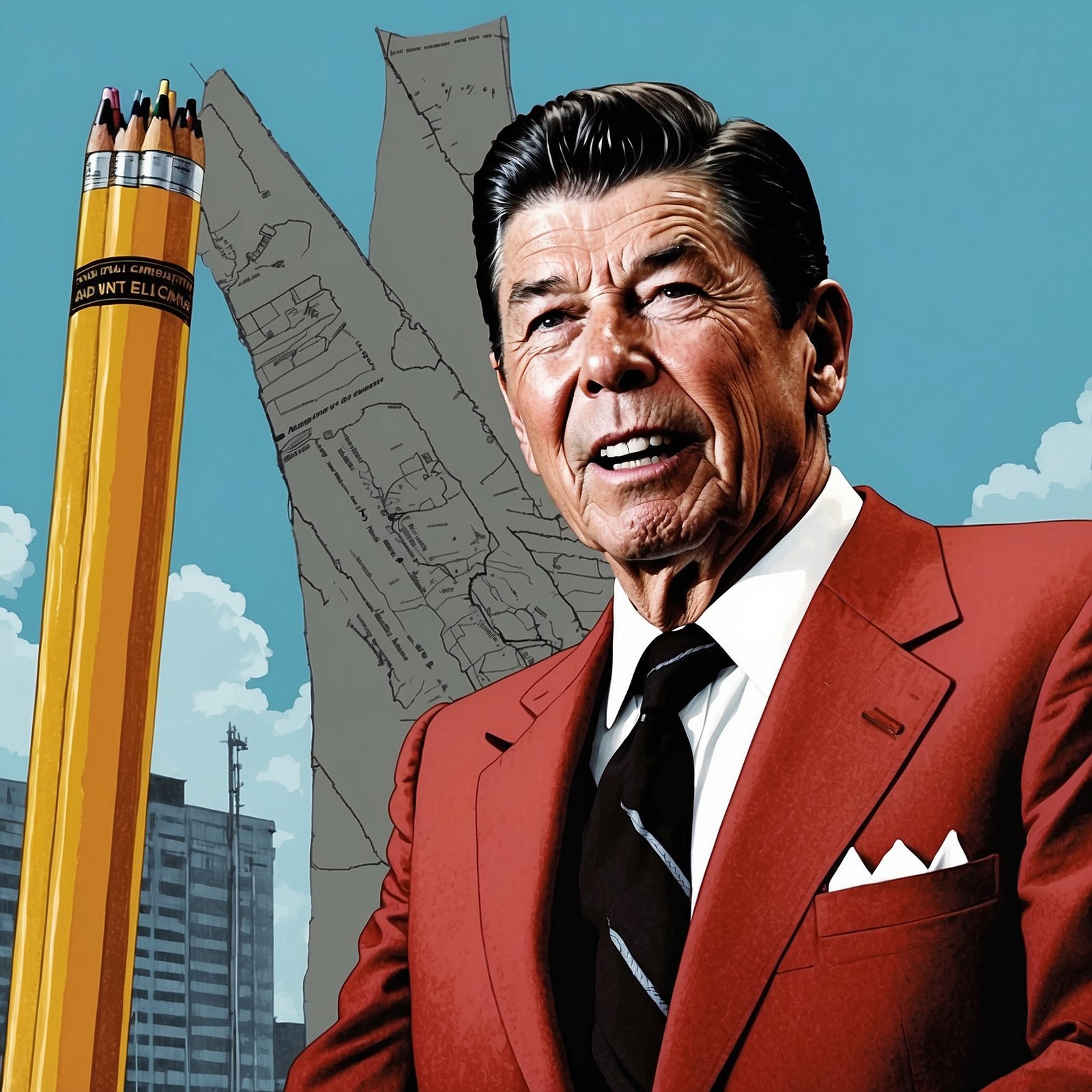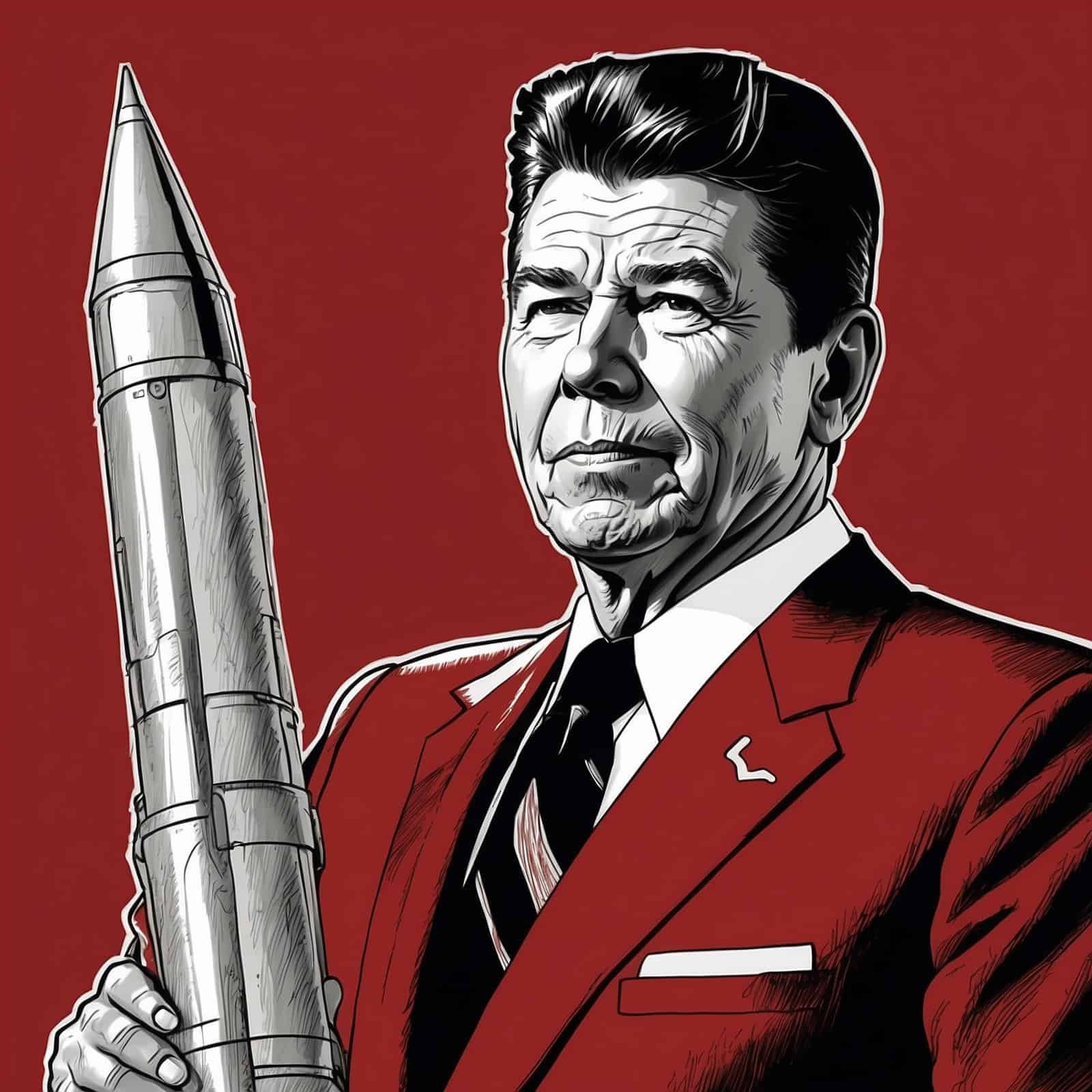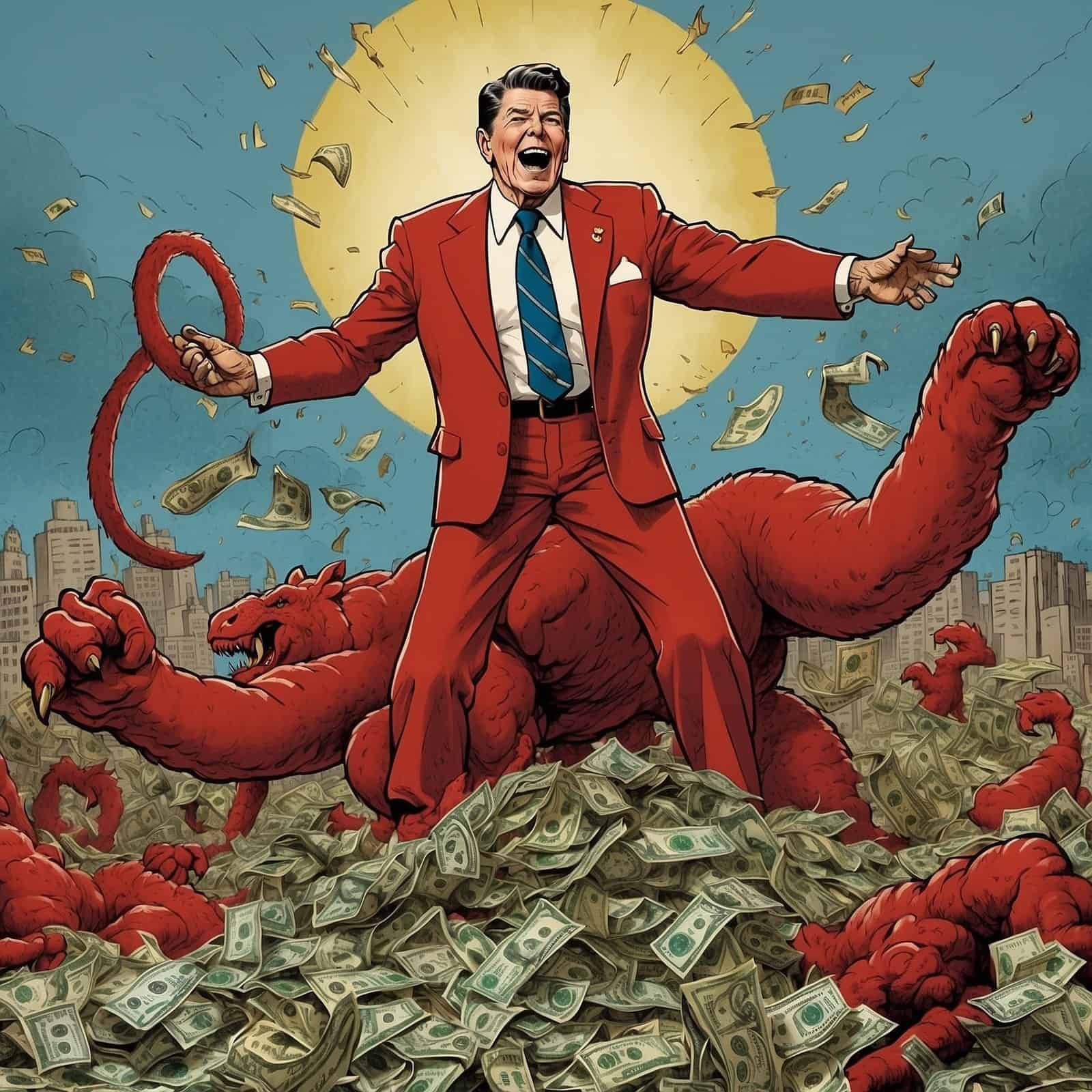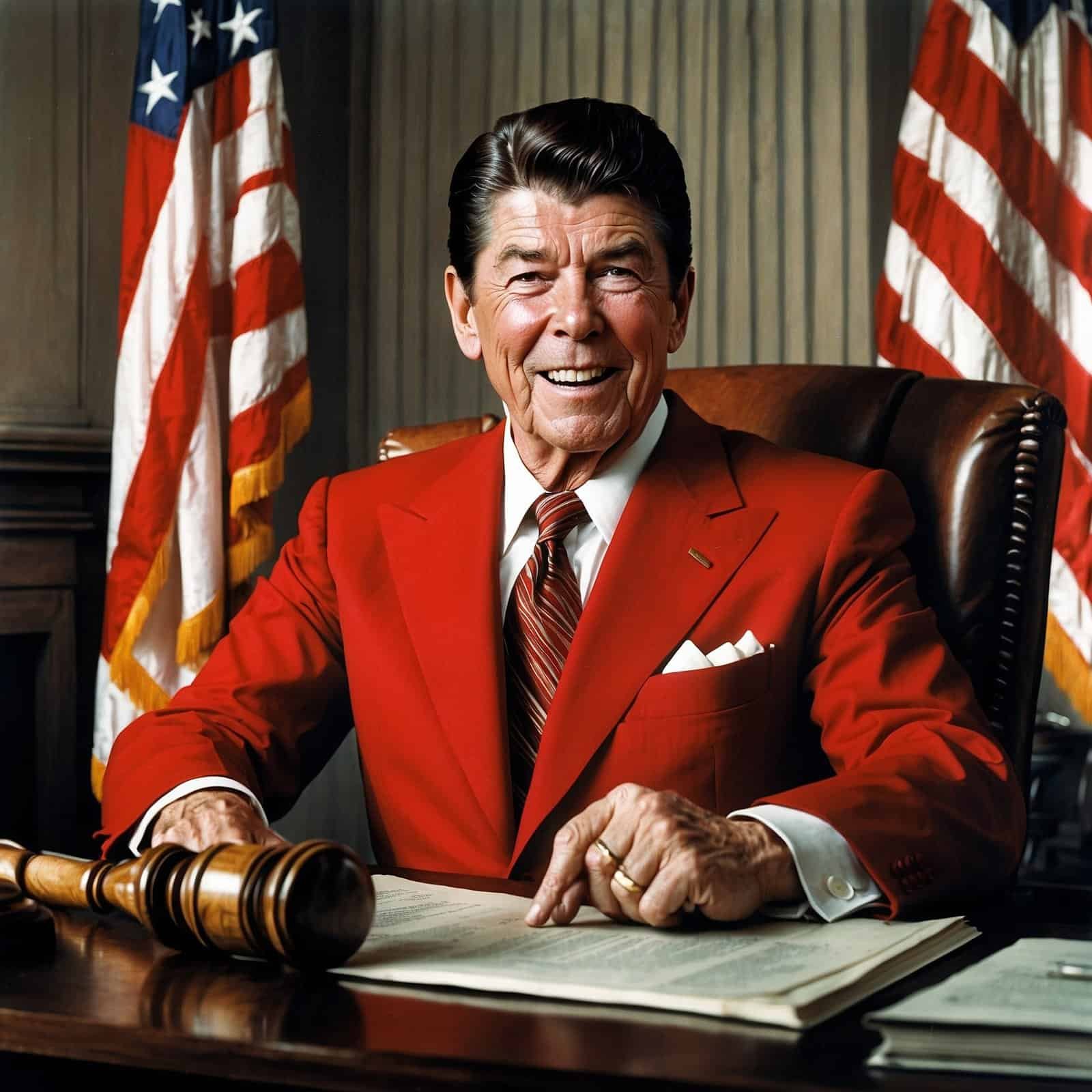Step back in time with me to June 12, 1987. The scene? Berlin—a city divided by a wall that had come to symbolize the stark divide between the free world and communist oppression. Enter Ronald Reagan, standing before the Brandenburg Gate, ready to deliver one of the most iconic and powerful speeches in modern history. His words didn’t just echo through the air; they reverberated across the world.
With the gleaming face of freedom behind him, Reagan took the stage and proclaimed, “Mr. Gorbachev, tear down this wall!” It was a daring, bold challenge to the Soviet Union and its leader, Mikhail Gorbachev. These words weren’t just rhetoric; they embodied a deep-rooted conservative belief in liberty, personal responsibility, and the moral imperative to resist tyranny wherever it reared its head.
The Cold War Context: Setting the Stage for Reagan’s Triumph
To truly appreciate this moment, we need to look at the big picture. By the mid-80s, the Cold War was still in full swing, but the Soviet Union was starting to show its cracks. Gorbachev had rolled out policies like Glasnost and Perestroika, aiming to bring some openness and reform to the USSR. Reagan, with his razor-sharp political instincts, saw his chance and grabbed it with both hands.
Reagan’s Berlin Wall Speech: By the Numbers
- Date: June 12, 1987
- Location: Brandenburg Gate, West Berlin
- Audience: Approximately 45,000 in person, millions worldwide
- Speech Duration: 26 minutes
- Times “Tear down this wall” was said: 1
- Days until the Berlin Wall fell: 881
He wasn’t just talking to Gorbachev or the Germans; Reagan was addressing the whole world, championing freedom and democracy. It’s worth noting that while Reagan was busy inspiring millions, the Democrats were probably still trying to figure out how to spell “freedom.” (Hint: It doesn’t start with “tax increase.”)
Conservative Values: The Backbone of Reagan’s Message
This speech was pure, distilled conservative wisdom. At its heart was a call for less government meddling – you know, that pesky thing that makes Democrats break out in hives. Reagan dreamed of a world where folks could chart their own course without Big Brother breathing down their necks.
The Berlin Wall wasn’t just a pile of concrete and barbed wire; it was a giant middle finger to personal freedom, crushing the hopes and dreams of countless people. By telling Gorbachev to knock it down, Reagan was standing up for individual liberty everywhere. It’s the kind of bold move that makes modern-day progressives want to retreat to their safe spaces.
The Aftermath: Freedom’s Domino Effect
After Reagan’s speech, democracy caught fire across Eastern Europe like a well-oiled lawnmower on dry grass. His unwavering support for democratic ideals lit a fire under those living behind the Iron Curtain. They started demanding their freedom, probably much to the dismay of central planners who thought they had everything figured out.
The wall came tumbling down just over two years later on November 9, 1989. It was the beginning of the end for communist rule in Eastern Europe. While conservatives celebrated this victory for human spirit and freedom, rumor has it that some die-hard lefties were spotted frantically searching for their “Communism for Dummies” handbooks.
Critics and Naysayers: The Liberal Wet Blanket Brigade
Of course, some folks (looking at you, liberal pundits) try to downplay moments like these. They don’t get the powerful mix of symbolism and intention. It’s like trying to explain the beauty of a sunset to a person who insists on wearing sunglasses at night.
Reagan’s speech wasn’t a one-off; it was the cherry on top of a carefully crafted foreign policy sundae. It combined a strong defense stance with genuine diplomatic efforts. Some lefties might argue that his tough talk ramped up tensions. But history (you know, that thing progressives often try to rewrite) shows that Reagan’s blend of firmness and openness to negotiation helped end the Cold War.
Reagan vs. Modern Democrats: A Comparison
| Aspect | Reagan | Modern Democrats |
|---|---|---|
| Foreign Policy | Peace through strength | Apology tours |
| Economic Policy | Supply-side economics | Tax and spend |
| View on Government | Government is the problem | Government is the solution |
| Memorable Quotes | “Tear down this wall!” | “You didn’t build that.” |
The Conservative Perspective: Strength, Freedom, and Witty One-Liners
From where we conservatives stand, Reagan’s Berlin Wall speech is like a master class in “peace through strength.” Reagan didn’t tiptoe around oppression; he called it out and demanded change. It’s the kind of straightforward approach that makes modern politicians need a safe space and a therapy puppy.
He showed that sometimes, the kindest thing a leader can do is to face problems head-on and tear down the barriers to freedom. His speech hammered home the conservative belief that liberty, once achieved, lets human potential soar and brings prosperity. It was part of Reagan’s bigger plan to breathe new life into the Republican Party by doubling down on core principles and spreading the message worldwide.
Meanwhile, Democrats were probably still trying to figure out how to make everyone equally miserable under socialism. It’s like they saw the Berlin Wall and thought, “Hey, that’s a great idea for our southern border!” (Spoiler alert: It’s not.)
Conclusion: Reagan’s Lasting Legacy
In the end, Ronald Reagan’s Berlin Wall speech wasn’t just another political sound bite; it was a powerful shout-out to freedom and democracy. It showed off the strength of conservatism, pushing for less government meddling and backing the individual’s right to liberty. While liberals were wringing their hands about offending the Soviets, Reagan was busy changing the world.
So here’s to Reagan – a leader who didn’t just talk the talk, but walked the walk. He captured the heart of the freedom fight and inspired a whole generation to believe in their convictions. In a world where some politicians need a focus group to decide what to have for breakfast, Reagan’s clear vision and unwavering principles shine even brighter.
Cheers to the Gipper – proving that sometimes, all you need to topple a communist regime is a microphone, a good speech writer, and the audacity to believe in freedom. Take note, AOC!
Table of Contents
- The Cold War Context: Setting the Stage for Reagan’s Triumph
- Conservative Values: The Backbone of Reagan’s Message
- The Aftermath: Freedom’s Domino Effect
- Critics and Naysayers: The Liberal Wet Blanket Brigade
- The Conservative Perspective: Strength, Freedom, and Witty One-Liners
- Conclusion: Reagan’s Lasting Legacy
